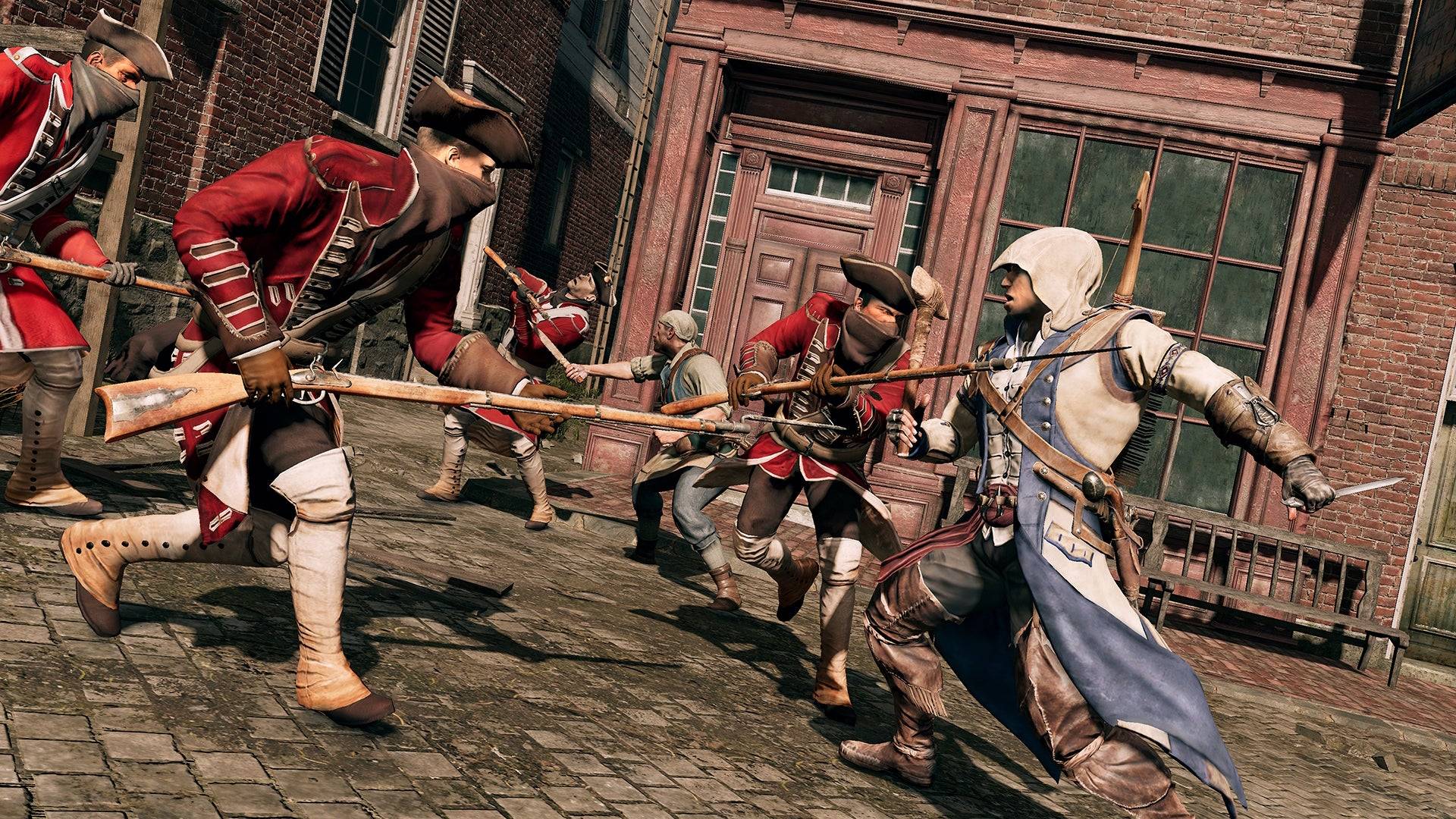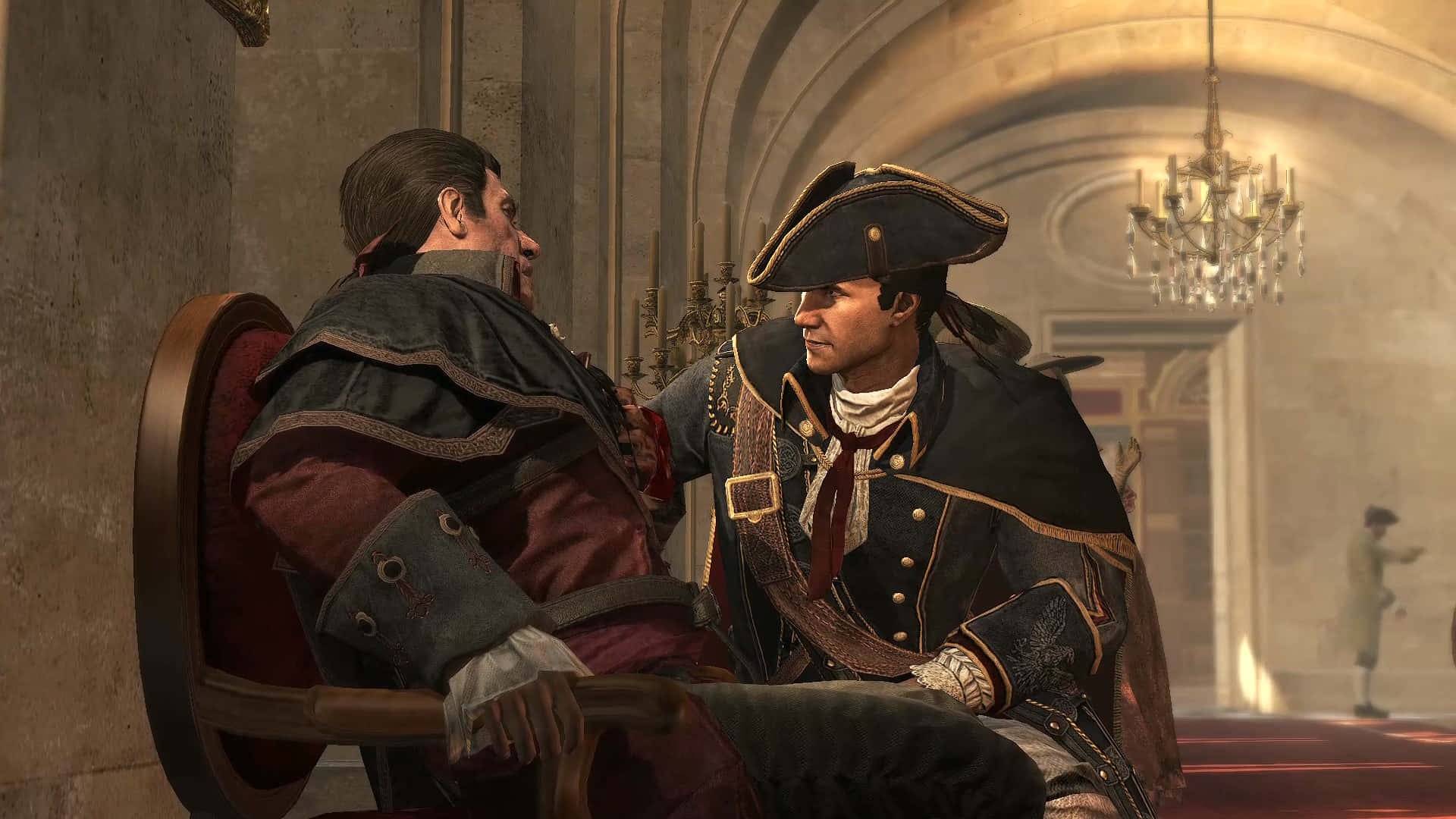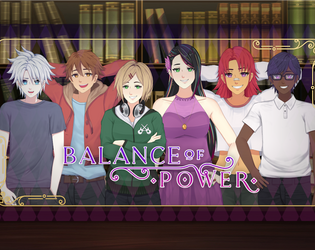One of the most iconic moments in the entire Assassin’s Creed series unfolds at the beginning of Assassin’s Creed 3, when Haytham Kenway concludes his mission to assemble a group of what the player initially believes to be assassins in the New World. Haytham's use of a hidden blade, his charismatic presence reminiscent of Ezio Auditore, and his heroic actions such as liberating Native Americans and confronting British redcoats, all lead players to assume he's an assassin. However, the twist comes when he utters the Templar creed, "May the Father of Understanding guide us," revealing that we've been following the series' antagonists, the Templars, all along.
This twist is a testament to the series' narrative potential. The original Assassin’s Creed introduced a compelling concept—identifying, understanding, and eliminating targets—but lacked depth in its storytelling, with both Altaïr and his targets lacking personality. Assassin’s Creed 2 improved this by introducing the charismatic Ezio, yet still fell short in developing its antagonists, notably Cesare Borgia in the spinoff Assassin’s Creed: Brotherhood. It was not until Assassin’s Creed 3, set against the backdrop of the American Revolution, that Ubisoft fully fleshed out both the protagonists and the antagonists. This enriched narrative flow from setup to payoff, striking a delicate balance between gameplay and story that has yet to be replicated in subsequent titles.
 Image credit: Ubisoft
Image credit: Ubisoft
Despite the positive reception of the current RPG era, a consensus among players and critics suggests that the Assassin’s Creed series is experiencing a decline. Various theories attribute this to factors like the increasingly fantastical elements, such as battling mythological figures like Anubis and Fenrir, the inclusion of romance options, or the introduction of real historical figures like Yasuke in Assassin’s Creed Shadows. However, I believe the real issue lies in the series' shift away from character-driven storytelling, which has been overshadowed by the expansive sandbox nature of the newer games.
Over time, Assassin’s Creed has expanded its original action-adventure roots with RPG and live service elements, including dialogue trees, XP-based leveling, loot boxes, microtransactions, and gear customization. Yet, as these new installments have grown larger, they've started to feel less substantial, not only in terms of repetitive side missions but also in their storytelling. While Assassin’s Creed Odyssey boasts more content than Assassin’s Creed 2, much of it feels less polished and more superficial. The introduction of player choice through dialogue and actions, intended to enhance immersion, often leads to scripts that feel stretched and less refined compared to the more focused narratives of the series' early action-adventure games.
This shift has impacted the series' immersion, making interactions with characters feel less authentic and more like engagements with generic NPCs rather than complex historical figures. The earlier games, particularly those on the Xbox 360/PS3, delivered some of the most compelling writing in gaming. From Ezio’s passionate declaration, "Do not follow me, or anyone else!" after defeating Savonarola, to Haytham's poignant final words to his son Connor:
*"Don't think I have any intention of caressing your cheek and saying I was wrong. I will not weep and wonder what might have been. I'm sure you understand. Still, I'm proud of you in a way. You have shown great conviction. Strength. Courage. All noble qualities. I should have killed you long ago."*
 Image credit: Ubisoft
Image credit: Ubisoft
The narrative quality has also been affected by the oversimplification of the moral dichotomy between Assassins and Templars. The earlier games, especially Assassin’s Creed 3, explored the blurred lines between these factions. Each Templar, upon defeat, challenges Connor's beliefs and, by extension, the player's. William Johnson suggests Templars could have prevented the Native American genocide, Thomas Hickey criticizes the Assassins' mission as unrealistic, and Benjamin Church argues that perspective shapes villainy. Haytham challenges Connor's faith in George Washington, hinting at the potential despotism of the new nation—a claim validated when it's revealed that Washington, not Charles Lee, ordered the burning of Connor’s village.
By the end of Assassin’s Creed 3, players are left with more questions than answers, enhancing the narrative's strength. Looking back at the series' history, it's clear why "Ezio’s Family" from the Assassin’s Creed 2 soundtrack became the franchise's theme. This piece, composed by Jesper Kyd, captures not just the Renaissance setting but Ezio’s personal journey and loss. While I appreciate the expansive worldbuilding and graphical advancements of the newer Assassin’s Creed titles, I hope the series will return to its roots, delivering the focused, character-driven stories that initially captivated me. In today's gaming landscape, dominated by large sandboxes and games with live service ambitions, such a return might not align with current business models, but it remains a cherished hope for many fans.















